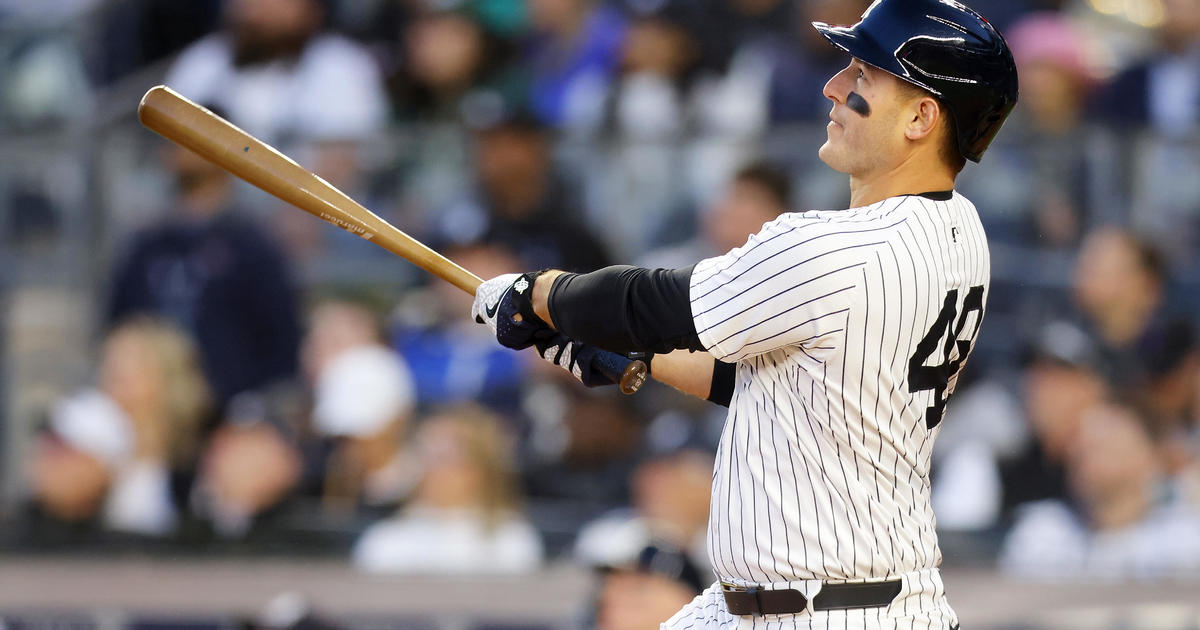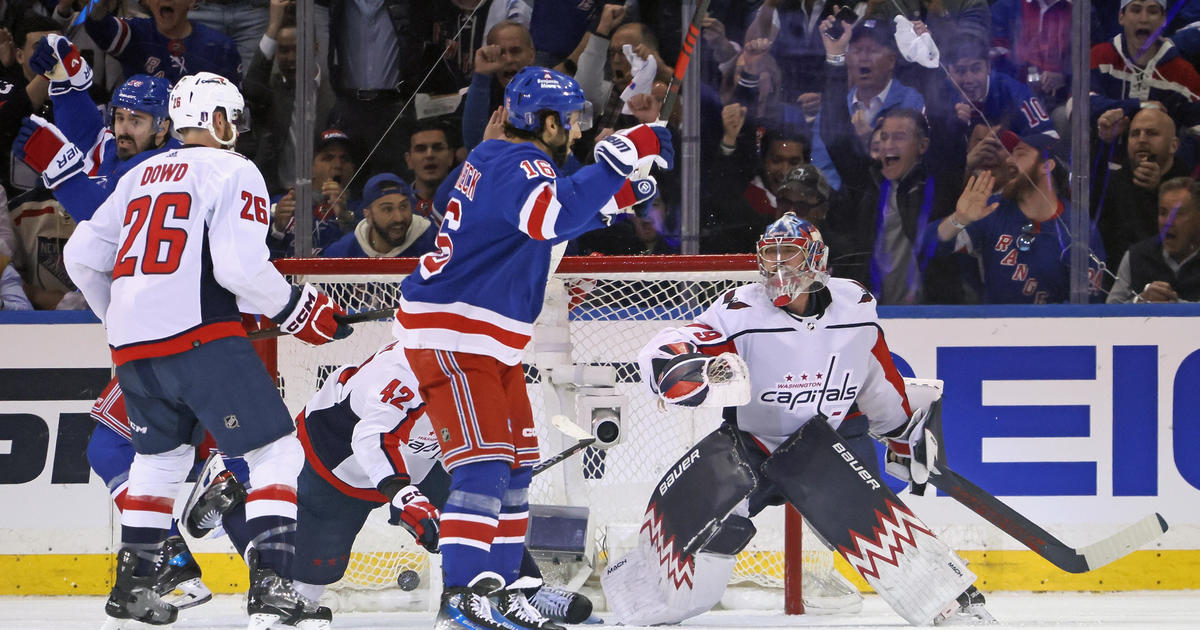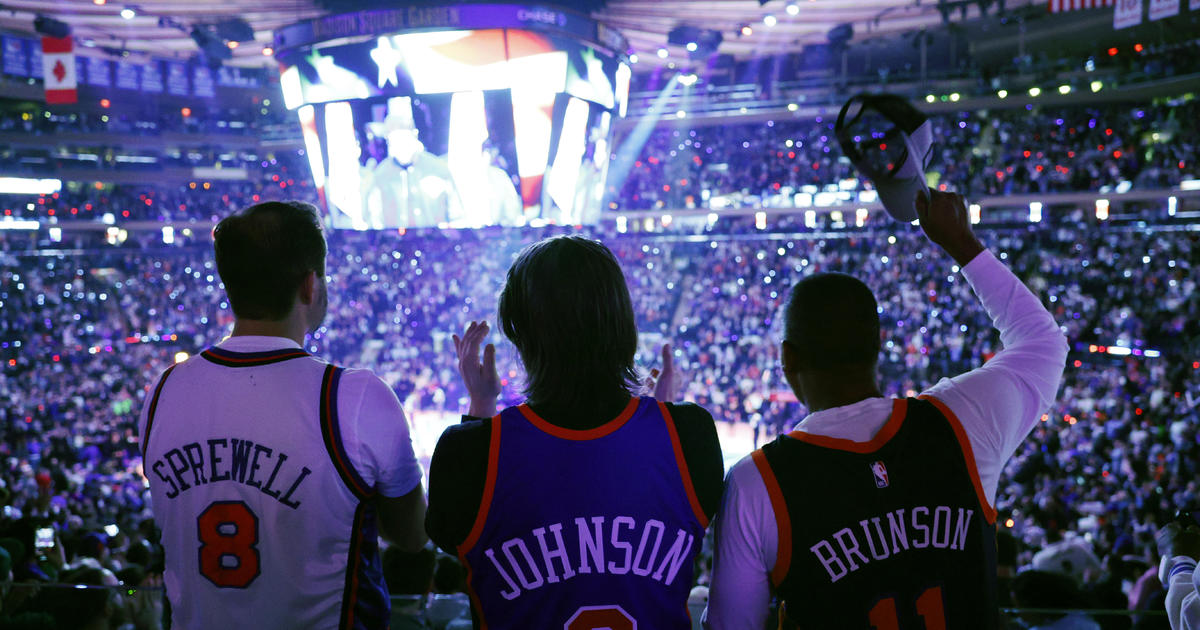Keidel: Ali-Frazier: Night Of The Century
By Jason Keidel
» More Columns
Appallingly, a dim light was cast upon the greatest sporting event in American history. It doesn't catch the key demo, the ADD-addled culture carved by MTV and smoothed by its progeny. If we weren't alive at the time, then it probably didn't happen, and it certainly didn't matter.
We can talk Ollie Perez, Perez Hilton, or Charlie Sheen. Or we can talk something important.
Yesterday marked 40 years since Muhammad Ali fought Joe Frazier inside Madison Square Garden, when the sport and our city were at their peaks, before Isiah Thomas, Jim Dolan, and a cadre of other clowns gelded the "World's Most Famous Arena."
With all the static of myriad sidebars it's easy to forget the fight as a singular athletic contest and the fighters as transcendent talents.
With all due respect to their fight in the Philippines, "The Thrilla in Manila," the bout itself was more brilliant in its barbarism than anything. Their skills had clearly diminished by 1975. But in 1971, MSG was the world's main nerve for one night, a confluence of timing and talent, never seen before or since.
Beyond the vitality of the fight when fighting was still vital, the night became a pseudo-referendum on war, class, and race. On some levels, that is sad, because it cloaks its true significance. Ali-Frazier didn't need a preamble. Their feet and fists did all the talking needed.
RELATED: 40 Years Later, Ali-Frazier Still An MSG Classic | Paige One: A Look Back At Ali-Frazier I – 40 Years Ago
Too often a star morphs into rambling crusader, assuming that they're instantly imbued with physical, philosophical and diplomatic powers that lay dormant until they became important. No matter your political leanings, we've all been sickened by some gaseous monologue from an actor or athlete who assumes we want to hear his/her thoughts on Darfur, immigration, or Medicare. It's not enough that they are lucky enough to inhale millions just because they're pretty or pretty good onstage. We must also kneel at their sudden sense of enlightenment
That's not to say Ali wasn't socially significant. He clearly was. But there is no Ali as activist without Ali as heavyweight champion. As Mike Francesa said yesterday, Ali's greatness was far more pronounced on the canvas than when he was canvassing. Like so many boys born in the late 1960s, he was on my Mt. Rushmore of icons because he possessed all the qualities for which a young man yearns: beauty, power, intelligence, eloquence, and courage.
(Later, of course, I learned that this hero was all too human, insulting Frazier far beyond the limits of gamesmanship, painting Frazier in grotesque stereotypical tones. Ali eventually apologized, though far too late. And it appears Frazier has finally forgiven him.)
The intelligentsia clung to Ali because he represented the counterculture, a big fist through the glass jaw of the establishment. In today's terms, those people are the trendy sort who watch the Super Bowl for the commercials and halftime music. Lost in all the hyperbole, however, was the fact that Muhammad Ali is one of the five most talented athletes ever to break a sweat.
And Joe Frazier was no slouch, either. It just looked like he labored because he was juxtaposed with Ali. There's a reason Frazier battered Ali for fifteen rounds in a display of grace, brutality, and Americana. Smokin' Joe was a badass.
Born and raised in the segregated South, a sharecropper's son who shared a shack with over a dozen siblings, Frazier knew better than most – including Ali – about the torments of a racially obtuse America. And no one worked harder for what he had than Joe Frazier, who was in top shape and at the top of his game on that glittering night in 1971.
This little gem from The Associated Press yesterday frames the fight perfectly…
"If Joe Frazier would have fought King Kong he would have knocked him out that night," said Gene Kilroy, who was a friend of both men and later became Ali's business manager. "Nothing was going to stop Joe Frazier."
Yesterday, I had the pleasure of speaking to Joe Frazier, who echoed the monolithic focus Kilroy described. As the only one of the two combatants who can still speak, he's now the de facto face and voice of the "Fight of the Century."
JK: How long did you train for the fight? Did you do anything different to prepare for Ali?
Frazier: My camps were always seven or eight weeks. I never changed my training regimen, regardless of the opponent.
JK: When did you know you were going to win the fight?
Frazier: As soon as I entered the ring.
JK: Did you care about all the social commentary surrounding the fight? Did you embrace it, loathe it, or were you too busy training to care?
Frazier: The last one. Too busy. I didn't think about it.
JK: Do you feel you're properly recognized for your place in the rivalry and in history?
Frazier: I think so.
JK: Was the fight a burden or an opportunity?
Frazier: Neither. I focused so hard on my training that I didn't get caught up in the other stuff. My job was to beat him.
JK: How did it feel to be back inside MSG last night (courtside for Knicks vs. Jazz)?
Frazier: It was wonderful. The fans showed a lot of love. I didn't notice until someone pointed it out to me that I was sitting 40 feet from where the ring was that night.
JK: Was March 8, 1971, the greatest night of your life?
Frazier: Probably the second best. The greatest was when I won the gold medal in 1964. I was the only American boxer to do it. It was very important to me to represent my country and bring back a medal.
(Many thanks to Frazier's manager, Les Wolff, for making the interview possible.)
Boxing is often energized by society, or at least by the cinema's interest in it. The sport is slowly rising from the canvas lately, with an injection of intelligent depictions, like Christian Bale's divine performance in "The Fighter," and Holt McCallany's haunting portrayal of an aging, demented boxer in FX's gripping drama, "Lights Out." And Sugar Ray Leonard has been working with Hugh Jackman on his role as a boxer in another film to be released this year.
A fight between Floyd Mayweather and Manny Pacquiao, the two greatest boxers on the planet, wouldn't hurt the game's Q rating, either. But it seems Mayweather's legal trouble may have him fighting in a cell before he ever climbs back into a ring.
My father, who was 27 in 1971, watched the fight at the old Felt Forum on closed-circuit television, like so many who couldn't procure tickets for the event. (An estimated 300 million saw the fight worldwide.) If Frank Costello and Frank Sinatra couldn't get seats, neither could my pops, who said he heard and felt the thunderous reactions from the arena just seconds before they flashed on the screen in front of him.
The first fight he took me to was at MSG, where I saw Roberto Duran, fell in love, and never fell out. Two decades later, I made my bones as a boxing writer, one of the few still straddling the notion of a comeback for the sweet science.
The closest I've come to such a magnetic event was the fight between Felix Trinidad and Bernard Hopkins, in 2001, also at MSG. The fight was postponed two weeks because Satan chartered two planes and crashed them into two buildings. New York desperately needed a distraction from the embers churning a few miles south.
In a chilling clinic, Hopkins dismantled "Tito" Trinidad, who was the crowd favorite, adopted by New York's devoted Puerto Rican population. Though I was covering the fight objectively for a boxing Web site, I was also the lone writer for Trinidad's personal site, long since yanked from cyberspace.
So I, along with the crowd, was stunned to watch the Latino legend crumble before an older, louder, but better boxer. The Puerto Rican flags were solemnly folded, the cowbells and salsa music muted. It felt as much like a funeral as a fight. In a sense, it was, as MSG's last big night as a boxing host.
No, it wasn't Ali-Frazier. It couldn't be. But it stirred the ghosts for a few hours, just enough to tickle my sense of nostalgia, wondering what it would have been like to sit next to my father in the Felt Forum, next door to history.
Feel free to email me: Jakster1@mac.com
Your thoughts on Ali-Frazier? Let us know in the comments below...




